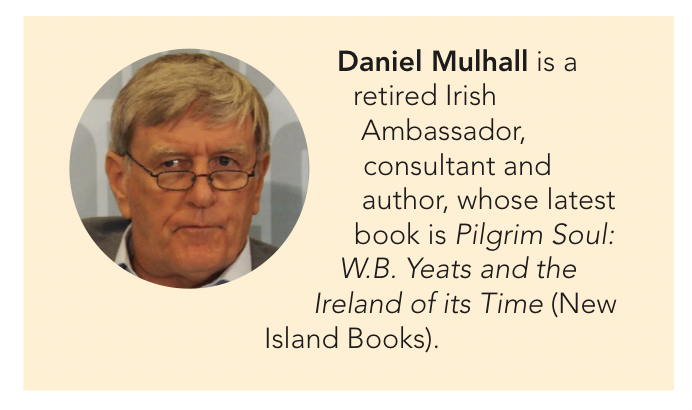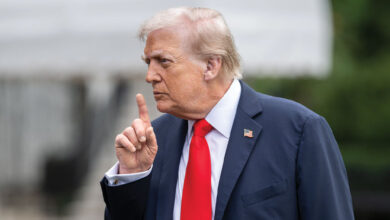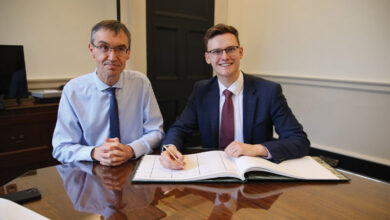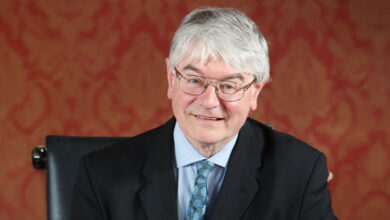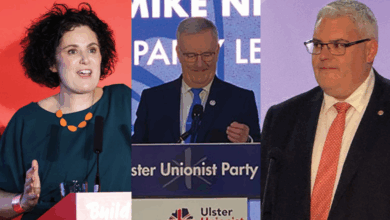100 years of Irish-US diplomatic relations
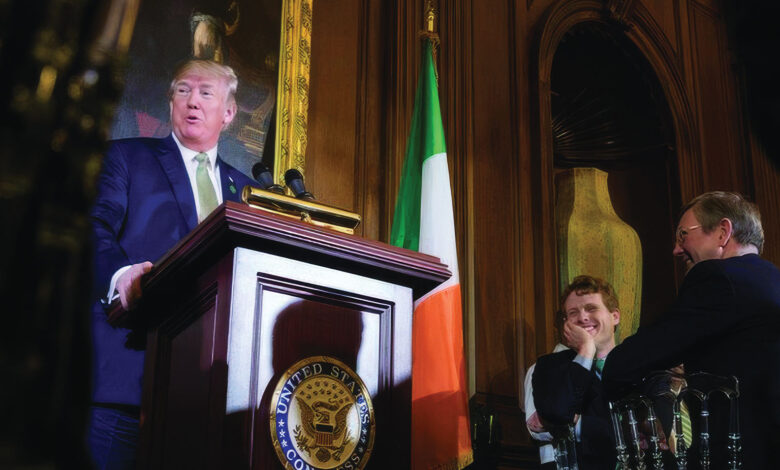
A new era has begun with the return to the White House of President Donald Trump. The years ahead look set to be a testing time for America’s role in the world, including for its relations with the European Union that are so vital to Ireland, writes former Irish Ambassador to the United States, Daniel Mulhall.
When I presented my credentials to President Donald Trump on 8 September 2017, I was conscious of being in a long line of Irish diplomats who served our country in Washington DC. That line stretched back October 1924 when Timothy Smiddy presented his credentials to President Calvin Coolidge as the Irish Free State’s Minister Plenipotentiary to the USA. That ceremony was a considerable achievement, less than two years after the state’s formal establishment.
In a 1922 report, the Free State’s first Foreign Minister, George Gavan Duffy, described the United States as “the only country where we can strongly and directly influence official action on a large scale”. That was the motivation behind the quest to gain diplomatic recognition in Washington.
The Government was fortunate that Canada had already been permitted by London to establish diplomatic relations with its southern neighbour, and there was no way that Ireland could have been denied a similar right. For the Free State, the priority in Washington was essentially political – maximising Irish independence in practice and symbolically.
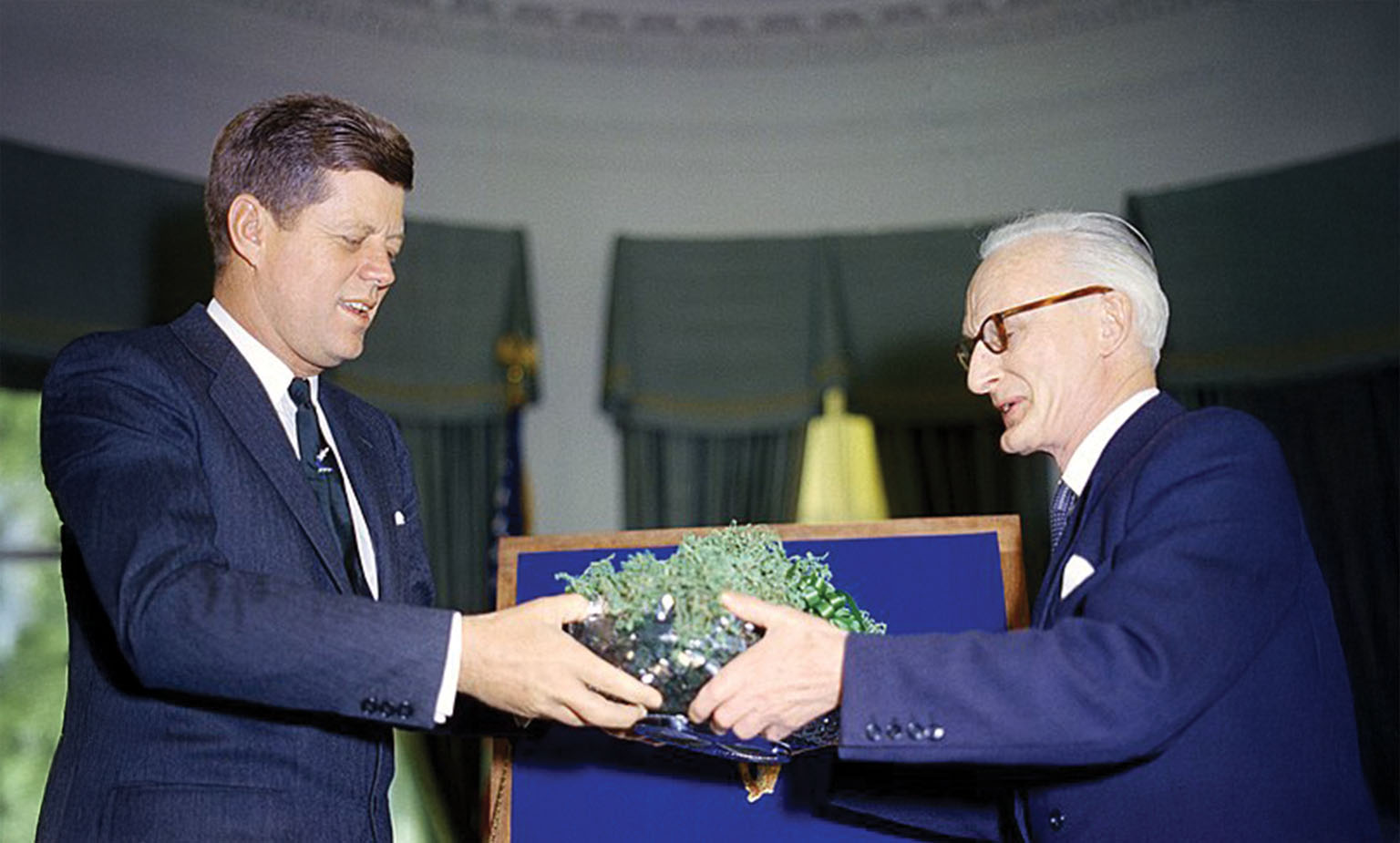
Cosgrave’s visit
As head of government, WT Cosgrave paid a groundbreaking visit to the USA in 1928 at a time when overseas visits by politicians were far less frequent than they are today. On arrival in New York, Cosgrave was treated to a famous New York ticker tape parade, and went on to visit Chicago, Philadelphia, and Washington DC, where he was hosted by President Calvin Coolidge and addressed the US Senate. Cosgrave’s visit has rightly been assessed as ‘an unqualified success’, burnishing Free State’s image as an independent nation-state.
While in Washington, Cosgrave stuck up a good rapport with Secretary of State, Frank Kellogg who, later that year, became the first high-level political visitor to Ireland. Kellogg was in France to sign the Kellogg-Briand Pact, and Ireland was the only other country on his itinerary. The visit was regarded as a milestone for the Free State because it further demonstrated the extent of its autonomy within the British Commonwealth.
De Valera and the USA
The United States watched with apprehension the acrimonious relations between Ireland and Britain following de Valera’s election in 1932. De Valera harboured unreasonable hopes that Roosevelt might put pressure on the British Government to end partition. The Americans, who were getting closer to Britain as the threat from Nazi Germany grew, were never likely to side with Ireland, although Roosevelt did provide gentle encouragement to Chamberlain during the negotiations on the Anglo-Irish Agreement of 1938.
The 1940s were probably the most difficult era in Irish-American relations, especially after the US entry into World War II in 1941. De Valera got on badly with Roosevelt’s cousin, David Gray, who was America’s wartime ambassador in Dublin. De Valera’s decision, against the advice of Iveagh House diplomats, to call on the German envoy after Hitler’s death damaged Ireland’s standing in America and angered many Irish Americans.
The shamrock enters the fray
In the 1950s, Ireland declined to join NATO and quietly sat out the Cold War, but in 1952 the then Ambassador, John Hearn, delivered a bowl of shamrock to the White House, thereby initiating an invaluable tradition. That period also saw the beginning of efforts to attract US investment to Ireland. The economic dimension to our relations has grown exponentially in the intervening decades making the US by far our most important international trade and investment partner.
The four horsemen cometh
In the initial stages of the ‘Northern Ireland conflict’, the US Administration steered clear of any involvement, claiming that there was ‘no appropriate basis to intervene with regard to the domestic political situation’ in another sovereign country. During the 1970s, John Hume established an influential rapport with Senator Ted Kennedy, which paid off when President Carter made a first-ever presidential statement on Northern Ireland. The Congressional Friends of Ireland was established in 1981, a bipartisan group that still exists and has been a big help to Ireland over the years.
Irish American lobbying resulted in President Clinton appointing Senator George Mitchell as Special Envoy to Northern Ireland. He was an inspired choice. Whenever the talks he chaired looked set to run aground, Mitchell’s patience and resilience, schooled by long years in the US Senate, invariably came to the rescue.
In the Oval Office during the Clinton Presidency, I was struck by the depth of the President’s knowledge of developments in Northern Ireland. I recall times during the talks in Belfast when word would go around that the White House was on the line. This meant that the world’s most powerful figure had picked up the phone to urge the talks’ participants to make the necessary compromises.
Brexit time
Irish America found its voice again in the wake of Brexit. In May 2019, Congressman Richie Neal of Massachusetts persuaded Speaker Nancy Pelosi to join a Congressional Delegation on a visit to London, Dublin, Belfast, and Derry. During her visit, the Speaker said that if “Brexit undermines the Good Friday accord, there will be absolutely no chance of a US-UK trade agreement passing the Congress”. Those remarks were impactful because Brexit advocates had been counting on a US trade deal to compensate for losses in trade with the EU.
US involvement in the peace process saw the interests of our small country get an influential hearing in Washington. Ireland can never match the comprehensive ties Britain has with America, but has its own diplomatic assets anchored by people-to-people links created by immigration. A new era has begun with the return to the White House of President Donald Trump. The years ahead look set to be a testing time for America’s role in the world, including for its relations with the European Union that are so vital to Ireland.
